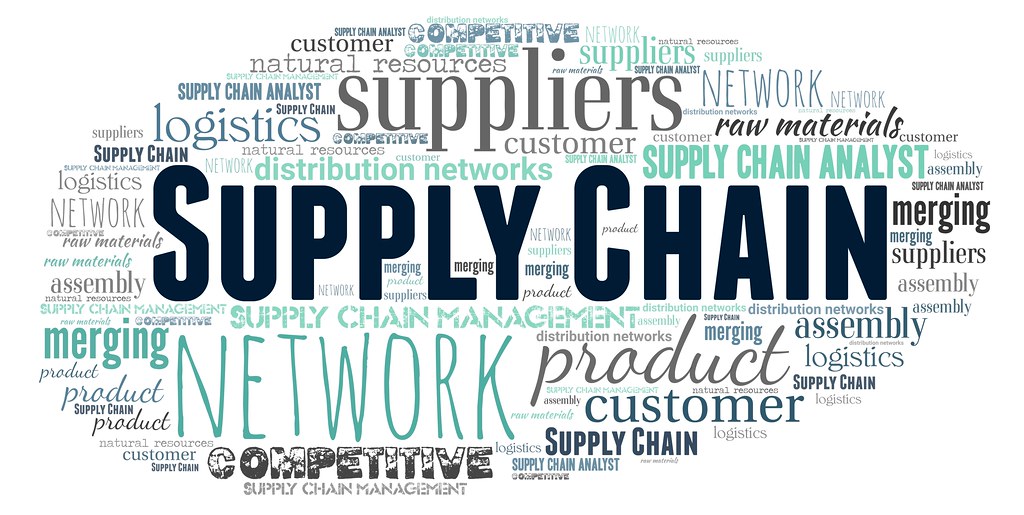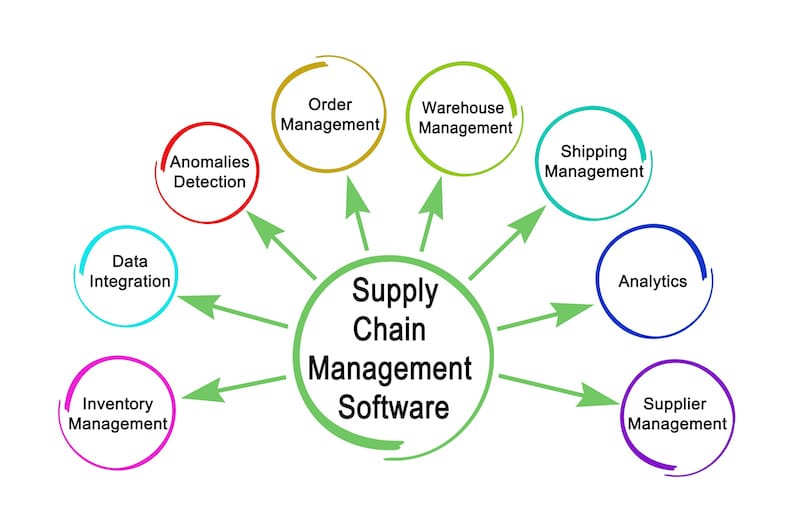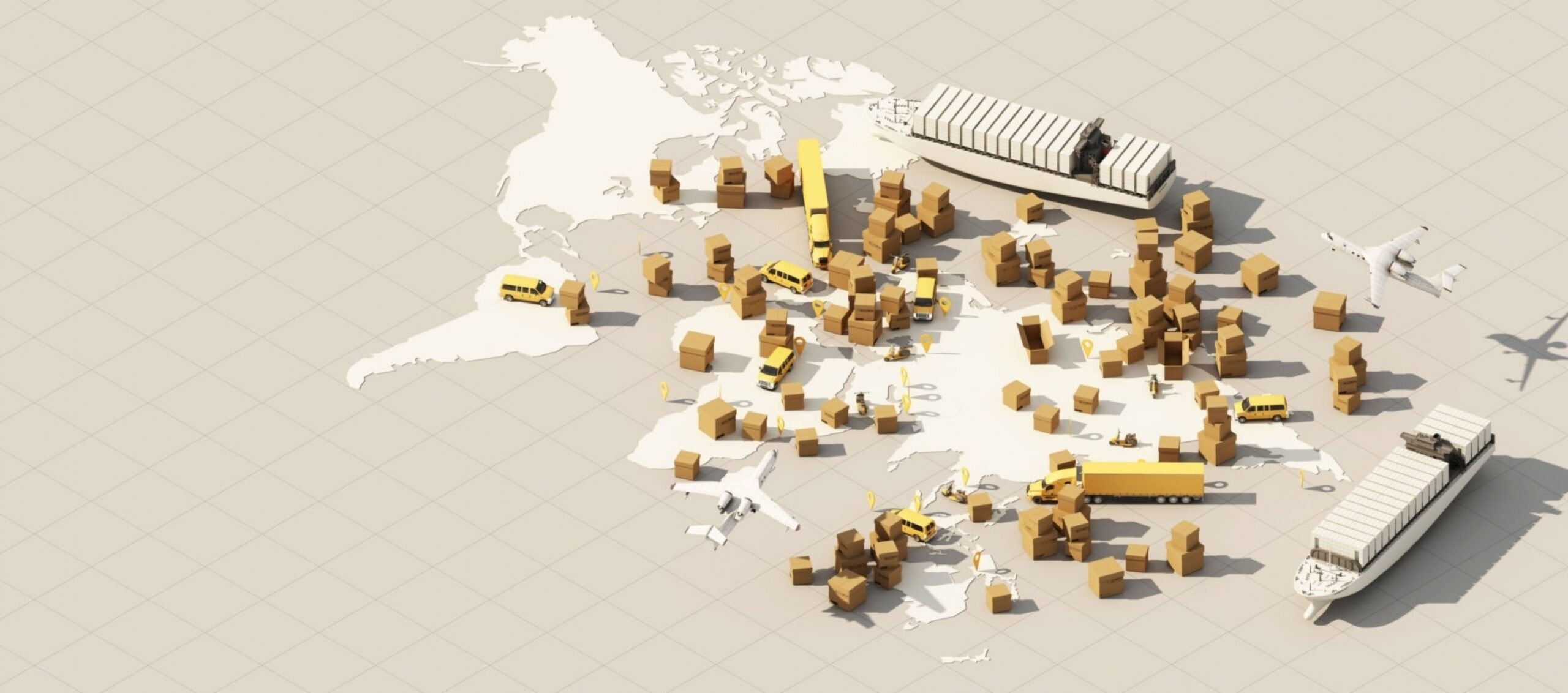Supply chain is a complex system of networking where individuals and companies involved in creating a product from the start in its raw form, right to the end process of the finished product and deliver it to the consumer. Nowadays, this system has evolved alongside the growth of technology and the term of autonomous supply chain was introduced. What is the meaning of autonomous in this matter and how does it work in manufacturing 4.0?
What is an Autonomous Supply Chain?

Autonomous supply chain is the system where the entire process of supply chain from designing to delivering are performed fully automatically by AI, digital machine, and Internet of Things, with little to no human intervention.
Is it possible? The whole concept of having everything done autonomously is still a futuristic concept, but the foundation of it has been laid out with a more automated solution for specific tasks in the chain link has been made available. Some example of an automation system includes creating and modifying orders, data extraction, repetitive tasking in the production floor and executing multiple procedures with no errors.
Autonomous Supply Chain Characteristic
The characteristic of this concept include:
- Little to no human intervention
- Integrated and sync with the whole steps of the supply chain to ensure its visibility and traceability.
- Scalable, with its capability to automatically scale operations up or down based on the available data.
- intelligent, by relying heavily on technology to process streams of data, analyze it, identify trends, and detect opportunities to gain high revenue by increasing the efficiency of the operations.
- Predictive, with the ability to analyze a stream of data to predict inefficiencies, issues, and potential bottlenecks.
Autonomous Supply Chain Benefit
Manufacturing industries will gain extra benefit from applying this system, such as:
- Increased productivity
The autonomous system ensures that the process in the production centre runs smoothly and uninterrupted, which will increase the productivity. - Reduce error
Automatic solution will minimize the possibility of mistakes that happen for various reasons including human error. - Traceability
This intelligent system allows the involved party to track down the journey of a product right from the beginning of the process into the end customer. When an error happens along the way, the manufacturer will be informed in real-time and take the necessary action immediately. - Cost reduction
A more efficient system will reduce the total cost. In this case, it could cut down costs in the transportation and warehousing by optimizing delivery route, inventory management, and reducing unnecessary touch points. - Improved planning
By using the automation process, the manufacturer could increase the speed and quality of the production process. The accuracy of data that the system brings to the management helps to improve the planning for other aspects including customer service, new product design, and inventory. - Increase agility
With the availability of accurate data and information, the team and management could address an exceptional case readily, improve the agility and resilience.
Supply Chain Technologies and Innovations
The backbone of the system is technology. Starting out by laying the foundation of this system by creating a fully digitized ecosystem, Internet of Things, Artificial Intelligence, and blockchain technology. From there, the manufacturing industries could go for more.

A few examples of technology innovation that is involved in this system are:
- Autonomous vehicles help to create faster, safer, less driver and less fuel to deliver products.
- Delivery route optimization, by allowing the technology to decide the most efficient route and how to get more products to deliver with less vehicle.
- AI and automation to reduce human error and streamlined the production process.
- Cobots or collaborative robots, used in the production floor and in the warehouse to automate certain tasks or to augment the human employee skill.
By the end of the day, this system shows the ability of a more efficient task performance, reduce cost, reduce injury risk, improve safety, and increase profitability, which serve well for everyone from the manufacturer to the end customer.
The process of incorporating the entire industrial supply chain can begin with selecting an appropriate site for constructing the factory. Suryacipta provides a suitable location, where 150 renowned global companies and approximately 50 respected Indonesian companies are already established. This location offers extensive areas for developing diverse industries. Positioned in the central area of West Java’s industrial zone, Suryacipta’s industrial park focuses on developing two industrial areas, namely Suryacipta City of Industry located in Karawang and Subang Smartpolitan located in Subang, West Java. They are well-prepared to accommodate manufacturing companies engaged in industry 4.0 worldwide. Its advantageous transportation access and the presence of intelligent technology and facilities further enhance its position as a crucial link in the supply chain.

